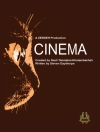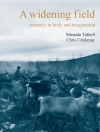This book looks at the connection between contemporary theatre practices and cosmopolitanism, a philosophical condition of social behaviour based on our responsibility, respect, and healthy curiosity to the other. Advocating for cosmopolitanism has become a necessity in a world defined by global wars, mass migration, and rise of nationalism. Using empathy, affect, and telling personal stories of displacement through embodied encounter between the actor and their audience, performance arts can serve as a training ground for this social behavior. In the centre of this encounter is a new cosmopolitan: a person of divided origins and cultural heritage, someone who speaks many languages and claims different countries as their place of belonging. The book examines how European and North American theatres stage this divided subjectivity: both from within, the way we tell stories about ourselves to others, and from without, through the stories the others tell about us.
Cuprins
1. Introduction: Setting the Stage – Performing the Divided Self of a New Cosmopolitanism.- 2. Chapter One: Dramaturgies of the Self: Staging the
Décalage of Vernacular Cosmopolitanism.- 3. Chapter Two: ‘Speaking in Tongues’: Staging Hospitality of (Non)Translation.- 4. Chapter Three: Dramaturgies of the Body: Staging
Stranger-Fetishism in a Cosmopolitan Solo Performance.- 5. Chapter Four: Staging
Cosmoprolis – Constructing the Chorus Play.- 6. Chapter Five: Dramaturgies of the Gaze: On the Intimate Realities of Cosmopolitanism.- 7. Chapter Six: Staging Affective Citizenship – Constructing Communities of Hope.- 8. Chapter Seven: How to Be a Cosmopolitan: Concluding Remarks.
Despre autor
Professor Yana Meerzon teaches for the Department of Theatre, University of Ottawa. Her research interests are in drama and performance theory, and theatre of migration and nationalism. Her book publications with Palgrave include
Performing Exile – Performing Self: Drama, Theatre, Film (2012),
Performance, Exile and ‘America’ (2009),
History, Memory, Performance (2015); and
Migration and Stereotypes in Performance and Culture (2020).












